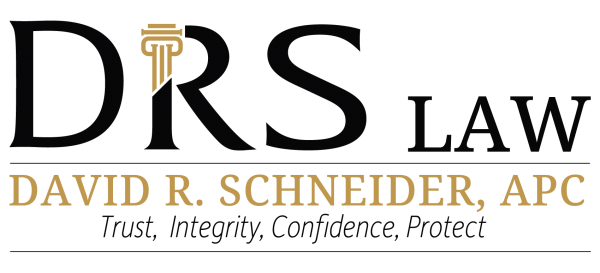As the new year begins, many of us find ourselves reflecting on our accomplishments, lamenting some of the things we did not start or finish, setting new goals, and preparing for the future. One crucial aspect of new-year planning that often gets overlooked is financial planning, particularly estate planning. We are often so glad to have completed this task that we do not often enough reflect on whether that plan remains up to date.
While we tend to focus on budgets, investments, and taxes, an updated or newly created estate plan is an essential part of a well-rounded financial strategy. Here’s why you should prioritize estate planning as you start out the new year.
Understanding Estate Planning
Estate planning involves making arrangements for how your assets will be managed if you are unable to properly manage your own affairs and how such assets will be distributed after your death. This includes not only financial assets like bank accounts and investments but also personal property, real estate, and even digital assets. A comprehensive estate plan ensures that your wishes are honored and can help minimize the stress on you and your loved ones during an already challenging time.
Why January is the Perfect Time for Estate Planning
Reflection and Review
The start of the year is a natural time for reflection. Consider how your life has changed over the past year. Have you welcomed a new family member? Experienced a change in marital status? Have your financial circumstances shifted? These life events can significantly impact your estate plan. The beginning of the year is a natural time to take stock of these issues.
Tax Planning Opportunities
It’s essential to consider the tax implications of your estate. Reviewing your estate plan can help you maximize your tax efficiency, allowing you to take advantage of annual gift tax exclusions or charitable contributions. By consulting with your tax advisors and making strategic decisions at the start of the new year, you may be able to reduce your taxable estate and potentially increase the inheritance your heirs receive.
Addressing Changes in Laws
Estate laws can, and often do, change from year to year. Keeping up-to-date with relevant legislation, including changes in tax laws or estate planning regulations, ensures that your estate plan remains compliant and effective. Consulting with an estate planning professional can help you navigate these changes.
Document Organization
Gathering financial documents and estate planning materials at the start of the year can help ensure everything is in order. Having an organized file with wills, trusts, durable powers of attorney, and other important documents not only aids in your planning but also makes it easier for your family to access these materials when needed. Other documents are helpful for the family, such as statements for accounts and declaration pages for insurance.
Discussing Your Wishes
Family gatherings can provide an opportunity to discuss your wishes with loved ones. When the family is gathered together, having an open conversation about your estate plan can help prevent misunderstandings or conflicts down the line. It’s also a chance to involve family members in discussions about future responsibilities, such as executor duties or healthcare decisions.
Steps to Create or Update Your Estate Plan
1. Assess Your Current Situation
Take stock of your assets, liabilities, and any changes in your personal circumstances. This assessment will provide a clear picture of what needs to be addressed in your estate plan. It is often very helpful to physically write these things down.
2. Consult a Professional
Working with an experienced and seasoned estate planning attorney can help you navigate the complexities of creating or updating your estate plan. An experienced estate planning attorney has seen hundreds of different family situations and can provide guidance tailored to your specific situation.
3. Draft or Update Documents
Whether you’re starting from scratch or updating an existing plan, an experienced estate planning attorney will be sure to help with additional documents that are essential to your plan, such as wills, durable powers of attorney, and advance healthcare directives. Consider who you want to designate as beneficiaries, trustees, and healthcare agents.
4. Communicate Your Wishes
Discuss your plans with your family. Make sure they understand your wishes and the roles they may play in executing your plan. Perhaps you thought someone was a good choice to advocate for your health care needs, and upon discussion, you may determine that a different family member may be better suited. Open discussions can help you get it right the first time.
5. Review Regularly
Estate planning is not a “set it and forget it” kind of project. Schedule regular reviews of your estate plan, especially after significant life events or changes in your financial situation. Consider incorporating asset protection strategies or establishing irrevocable trusts if your circumstances warrant it.
Estate Planning is a Key Part of Safeguarding Your Family’s Future
As you set your goals this year, don’t overlook the importance of updating or creating your estate plan. A solid estate plan not only protects your assets but also provides peace of mind knowing that your wishes will be honored. By taking proactive steps now, you can ensure a smoother transition for your loved ones and set a strong foundation for the future. Make estate planning a priority this year, and take control of your financial legacy!
Take the Next Step
Ready to secure your future and protect your loved ones? Contact our experienced estate planning attorneys today to schedule a consultation. Let us help you create a comprehensive estate plan tailored to your unique needs.

